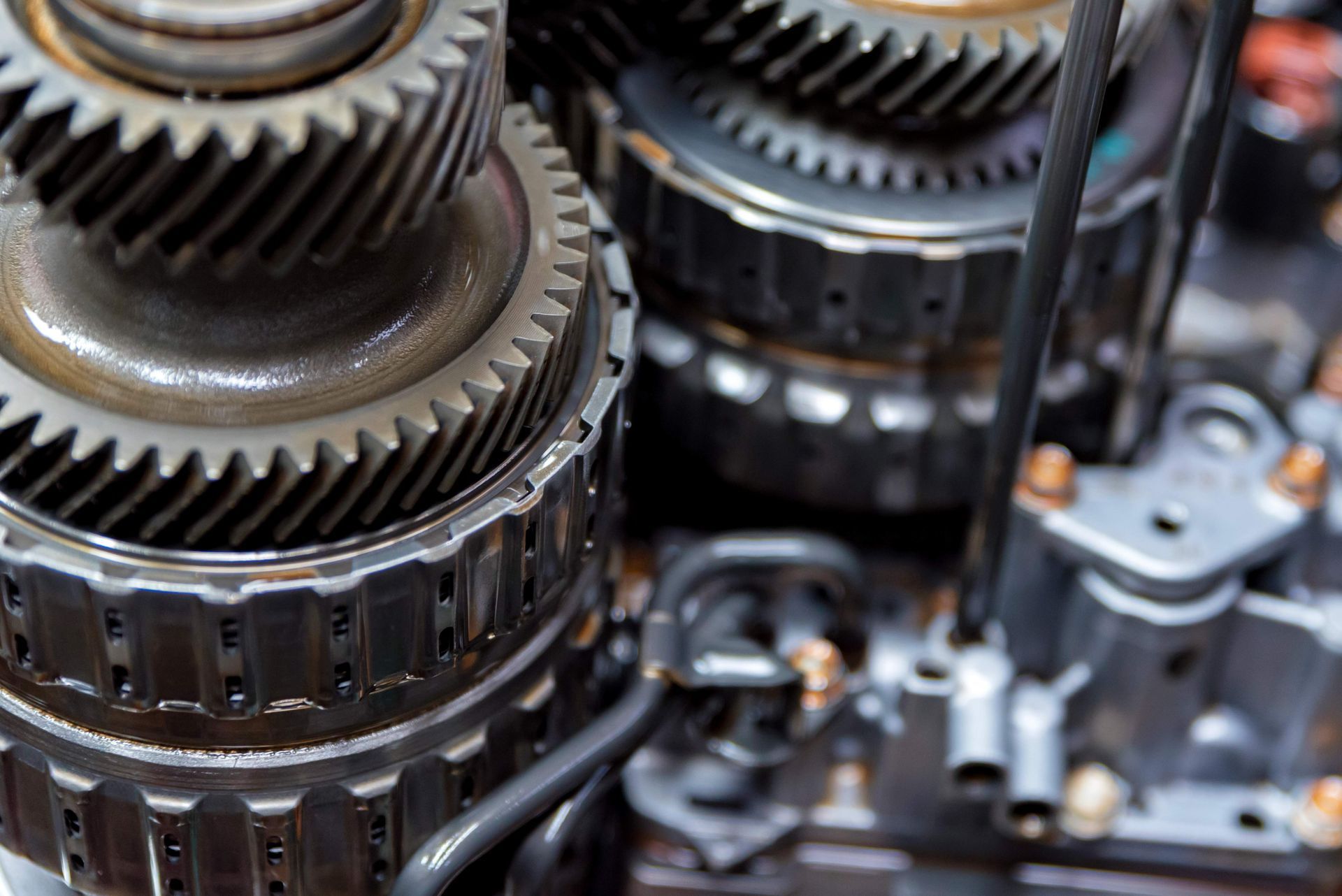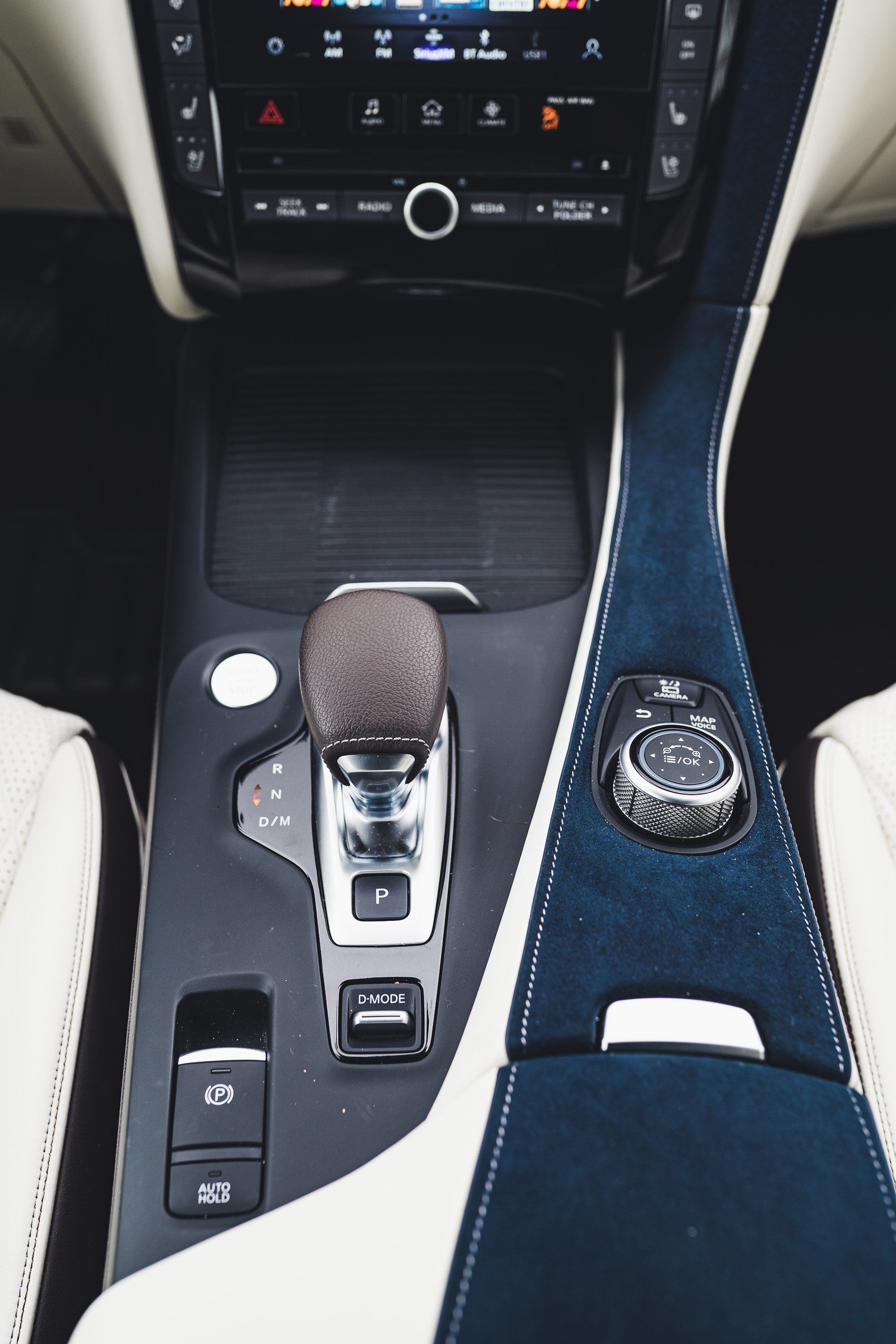Reno Transmission Repairs & Services
Types of Transmission We work on
Automatic Transmission
This type of transmission changes gears automatically, making it easier for drivers by eliminating the need for manual shifting. It's ideal for those who prefer a more relaxed driving experience.
Manual Transmission
Also known as a stick shift, this transmission requires the driver to manually engage gears by using a clutch pedal and a gear lever. It offers more control over the vehicle's performance and is favored by enthusiasts for its direct connection to the engine.
Continuously Variable Transmission (CVT)
CVTs offer seamless and continuous gear ratio adjustments, resulting in a smooth and efficient driving experience. They are often found in smaller cars and hybrids.
Dual-Clutch Transmission (DCT)
DCT combines elements of both manual and automatic transmissions, allowing for rapid gear changes without the need for a clutch pedal. It's known for its quick shifts and is popular in sports cars and some high-performance vehicles.
Semi-Automatic Transmission
Also called "automated manual" or "paddle-shift," this transmission provides manual control through paddle shifters or buttons while still offering an automatic mode. It's a compromise between manual and automatic transmissions, commonly found in sports cars.
How long does a transmission repair take?
The duration of a transmission repair can vary significantly based on several factors, including the extent of the damage, the type of vehicle, and the availability of parts. Here at MAP AUTO we will go over the entire duration and costs prior to starting the work. Here are time and cost variables we walk you through:
Reno Minor Transmission Repairs
Simple transmission repairs, such as replacing a solenoid or fixing a minor leak, can typically be completed within a few hours to a day. These are relatively quick fixes that do not involve a complete transmission overhaul.
Reno Major Transmission Repairs
More extensive repairs, like rebuilding or replacing the entire transmission, can take anywhere from a few days to a week or more. This includes diagnosing the issue, removing the transmission, sourcing replacement parts, and then reassembling and testing the transmission.
Reno Transmission Replacements
f the transmission is beyond repair and needs to be replaced entirely, it may take several days to a week or more. The time can also depend on the availability of the specific transmission for your vehicle.
Custom Reno Transmission Builds
For custom or specialty transmissions, especially in high-performance or modified vehicles, repairs can take longer due to the need for specialized parts and expertise. It might take several weeks or even months to complete such projects.
It's crucial to remember that these are general estimates, and the actual time required can vary from one repair shop to another. Additionally, unforeseen issues or complications may arise during the repair process, which can extend the time needed for the repair. To get an accurate timeframe for your specific situation, it's best to consult with a qualified mechanic or repair shop, as they can provide a more precise estimate based on your vehicle's condition and the required repairs.

Get a FREE
Transmission Quote
Contact Us
We will get back to you as soon as possible.
Please try again later.
Quick & Reliable
Quick quotes, quick repairs, seamless 24/7/365 drop offs and pick-ups.
Signs your Drivetrain needs repairs
Unusual Noises
Strange noises, such as clunking, grinding, or whining, coming from underneath your vehicle while driving, particularly during acceleration or deceleration, can indicate drivetrain problems.
Vibrations or Shuddering
If you feel excessive vibrations or shuddering sensations, especially when accelerating or maintaining a consistent speed, it could be a sign of issues within the drivetrain components.
Difficulty Shifting Gears
If you have a manual transmission and experience difficulty shifting gears, or if you have an automatic transmission and notice delays, rough shifts, or slipping between gears, it may indicate a problem with the transmission, which is a key part of the drivetrain.
Reduced Power or Performance
A noticeable decrease in your vehicle's power or performance, particularly when climbing hills or towing heavy loads, can be a sign of drivetrain issues. This can result from problems within the transmission, differential, or other drivetrain components.
Fluid Leaks
Check for any fluid leaks underneath your vehicle. Leaking transmission fluid, differential oil, or other drivetrain fluids can be a sign of a problem that needs attention.
What other parts of my transmission need fixing?
Transmissions are complex systems with numerous components, and various parts can break down or experience problems over time. Some common parts of transmissions that can fail or require repair or replacement include:
1. Transmission Fluid
Dirty or low transmission fluid can lead to overheating and damage to various transmission components. Regular fluid changes and maintenance are essential to prevent this issue.
2. Torque Converter
The torque converter is responsible for transferring power from the engine to the transmission. Problems with the torque converter can lead to issues like slippage, poor acceleration, and shuddering.
3. Clutch (Manual Transmission)
In manual transmissions, the clutch can wear out over time, leading to difficulty shifting gears or a slipping clutch, which affects the ability to transfer power efficiently.
4. Transmission Control Module (TCM)
The TCM is the brain of an automatic transmission, controlling shifting patterns. If it malfunctions or fails, it can cause erratic shifting or prevent the transmission from functioning properly.
5. Solenoids
Solenoids control the flow of transmission fluid and gear changes in automatic transmissions. When they fail, it can lead to shifting problems and other issues.
6. Valve Body
The valve body directs the flow of transmission fluid and controls gear changes. Problems with the valve body can result in harsh shifts, delayed shifts, or other transmission issues.
7. Input and Output Shafts
These shafts transmit power from the transmission to the driveshaft and wheels. Damage or wear to these components can lead to slipping, grinding, or loss of power.
8. Bearings and Seals
Bearings and seals help reduce friction and prevent fluid leaks within the transmission. Over time, they can wear out and cause leaks or noise.
9. Gears and Synchronizers
In manual transmissions, gears and synchronizers can wear down, leading to difficulty shifting smoothly between gears.
10. Transmission Mounts
These rubber or polyurethane mounts hold the transmission in place. If they fail, it can result in excessive vibration and misalignment.
11. Drive and Driven Gears (Differential)
In some vehicles, especially those with rear-wheel drive or all-wheel drive, the differential gears can wear out or become damaged, leading to noise or uneven power distribution.
It's important to note that the specific components that may fail can vary depending on whether you have an automatic or manual transmission and the make and model of your vehicle. Regular maintenance and prompt attention to any signs of transmission trouble can help extend the life of your transmission and minimize repair costs. Complete our online form, book an appointment, or simply call us today to help

Get a FREE
Transmission Quote
Contact Us
We will get back to you as soon as possible.
Please try again later.
Quick & Reliable
Quick quotes, quick repairs, seamless 24/7/365 drop offs and pick-ups.
Location
Call
Reno's #1 customer service based auto repair shop. Get fast quotes, fast repairs, and the honesty you deserve in your local mechanic.
Privacy Policy Link
Terms of Use
Services
Working hours
- Mon - Thu
- -
- Friday
- -
- Sat - Sun
- Closed
All Rights Reserved | MAPT Automotive
Website and Digital Marketing by Talents Into Profits (TIP)

